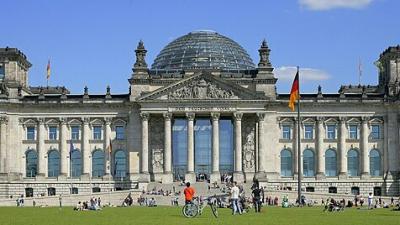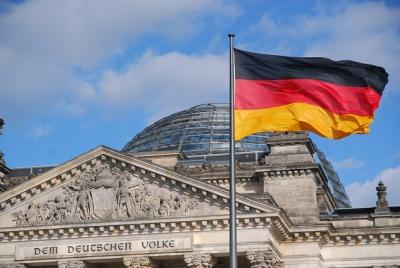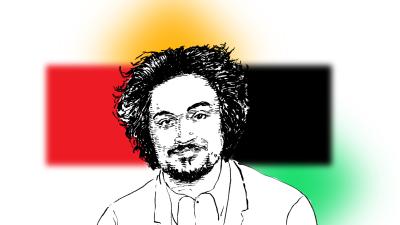Summer breaks are breathers for politics. The German government is particularly in need of one. It has de facto taken refuge in the summer break because a crucial law has fallen on its toes.
The traffic light government consisting of Social Democrats, Greens and Liberals had wanted to push the "heat turnaround" through the German parliament by brute force. This was a programme that envisaged the Germany-wide exchange of heating systems from "fossil" oil and gas heating to heat pumps. Despite the Italian experience, which is regarded as a cautionary example in Europe. However, as is well known, the German government is also planning to introduce a citizen's income, while Italy is pulling out of precisely such schema. German hubris is evident not least in its provincialism.
The huge project, which would have burdened homeowners and tenants alike, was postponed in the most embarrassing way. The controversial law, which even brought the demonstration-phobic Teutons onto the streets, was to be passed as quickly as possible. Not only did it have the reputation of being quickly cobbled together, ideological, unsophisticated, anti-social and with unknown pitfalls; the ink of Patrick Graichen, the former state secretary of Economics Minister Robert Habeck, was also on the paper.
Before his time in office, Graichen was the director of the think tank Agora Energiewende, whose network includes several state secretaries of the federal government and can be seen as the spearhead of an eco-lobby that is fed with money by a network of foundations. With Graichen, the green lobby had a permanent seat in the ministry and could finally implement more strictly the laws that had been preconceived for years. It had been the case for two decades that money from green ministries went to green NGOs; but Graichen's undoing came in the end, when he was caught cobbling several hundred thousand euros to an eco-association whose board included his sister.
The Graichen affair, which was in reality an Agora affair, and in fact concerned predominantly the influence of NGOs and climate networks rather than family ties, was one of the most dangerous tests so far in the almost two years of the traffic light government. At times, even Habeck's own chair wobbled, because at least two other state secretaries are considered to be in trouble. The position of State Secretary Udo Philipp, who is accused of favouring start-up companies in which he himself had invested, is mainly due to the fact that Minister Habeck muzzled the committee investigating the matter. In short: in Germany, the executive domesticates the legislature when the latter is supposed to exercise its control function.
According to this, Habeck, like the entire government, had a strong interest in pushing the heating bill through the Bundestag and then going on holiday in order to swiftly kill the dispute about personalities, dubious entanglements, lobby networks, ailing state secretaries and an unpopular as well as obscure law.
To illustrate what the German government thinks of the parliamentary process, it is enough to know that it presented the final bill on a Friday and scheduled an expert hearing for the following Monday. That was exactly a weekend during which the experts could consult a paper of over 100 pages that would result in drastically changing the lives of millions of Germans, as well as enforcing long-term conversion of heating systems, thus incurring costs in the billions. The rush was necessary because the law was to be passed on the following Thursday or Friday. Seven days between draft and passing - maximum!
Possible mistakes, shortcomings, built-in pitfalls or intended formulations between the lines, the meaning of which would only become apparent later, were obviously desired. For even if the experts had pointed out what was still missing in the law - their suggestions for improvement would hardly have been incorporated into the text of the law. The committee of experts was therefore just as much a farce as the later vote in parliament. Hardly any MP had the time to read and understand the text of the law in that short time.
But such recklessness proved too much for the German Federal Constitutional Court. It stopped the scheduled vote just a few days before the summer break. The parliament had the right to devote to such an important piece of legislation as much time as it deserves. We are relieved: in Germany, the parliament is not completely at the mercy of the Federal Chancellery, even if it sometimes needs the help of the Constitutional Court.
The fact that this was a precedent was not noticed either at home or abroad. Never before has a federal government disgraced itself in such a way that it had to be told by the Constitutional Court not to follow parliamentary procedure. Especially not so shortly before the vote. The Greens saw it as an insult to their majesty; and Minister Habeck arrogantly said that the opposition now had more time to read the text of the law. In reality, the federal government had dared nothing less than a breach of the constitution, and now tried to play the event down in a defiant reaction.
The heating bill, which was not passed, has thus become a liability. It will not be back on the agenda until September. Now the opposition and experts have enough time to read the small print, which would have been overlooked in the rush. Whether the traffic lights will be able to push the law through as easily as they thought before the summer break is therefore doubtful. Habeck's obstinate and authoritarian behaviour is also making the liberal coalition partner, the FDP, frown.
Secretly, the traffic light parties know that they will lose important time with the postponement. For the possible passage of the partly hated heating law could fall shortly before election day in the two federal states of Hesse and Bavaria. Punishment at the ballot box will follow on its heels in these regions. The AfD is now reaching 23 per cent in some polls and even threatens to overtake the CDU/CSU. If the two sister parties are divided, then according to some forecasts the AfD will already become strongest party in Germany. And with every day that the traffic lights govern and erode the prosperity of the Germans a little further, this trend threatens to become more entrenched. Europe's largest economy is now considered to be at the bottom of the continent in terms of economic development; and the multi-billion dollar eco-dreams will do their bit to keep it that way.
Read also
Country Report: Germany, June 2023: The “Ampel”-Coalition wants the heat pump at any price - and is causing political instability
The German government is increasingly slipping the reins. For months it has been arguing about its latest project: the "heat turnaround" (“Heizungswende”). The project is modelled on the “energy turnaround” (“Energiewende”) that forced Germany to phase-out of nuclear power and scooped up "renewable energies" with the watering-can principle.
Marco Gallina
The Individual on the Defensive
Do Nazis have a right to life? Outside Germany, such a debate might seem perplexing. But during the last days of May, discussions in Germany revolved around nothing less, after a left-wing extremist was released under quite lenient conditions.
Marco Gallina
Journalists on state payroll
For example, the federal government has spent almost 1.5 million euros on commissions to journalists over the last five years – whereby a significantly higher part was spent on public service journalists.
Marco Gallina
The Weakness of the CDU
he current crisis of the Christian Democratic Union raises the question whether the CDU is also facing a path similar to that of the Italian Democrazia Cristiana.














Comments (0)